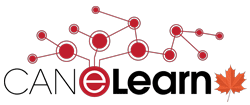This article appeared in Touro University – The Record, a newsletter released by Touro University, California – the institutional affiliation of the lead researcher for the State of the Nation: K-12 E-Learning in Canada study, Michael Barbour – this past week. CANeLearn is a partner with the State of the Nation.
Approaches to E-Learning: Dr. Michael Barbour’s Survey of K-12 E-Learning in Canada
Sometimes the best way to see yourself is to turn to your neighbor.

“In contrast to the US where the idea is that we need to be proliferating this wave of the future in online learning,” explains Dr. Barbour, “Canada’s biggest question comes down to ‘Is this the best way for a child to learn at this time?'”
Both the US and Canada have seen similar levels of growth in the number students engaged in distance learning. But Canada primarily uses e-learning as a supplement to the classroom, while there is a much higher proportion of full-time e-learning in the US.
“This is important because in the United States the growth has largely been advocated for by for-profit corporations,” says Dr. Barbour , “whereas in Canada that growth has been largely due to the necessity to provide equitable access to education and/or due to conscious decisions by practitioners about the appropriateness of its use for their students.”
Dr. Barbour continues, “In Canada, K-12 online and blended learning began as a way to serve students that didn’t have access to certain aspects of the mandated curriculum, but it has evolved into an option that teachers have to better serve their students as another arrow in their pedagogical quiver. There are still some elements of this in the United States, but it tends to be dwarfed by free market principles.”
Dr. Barbour’s project is the most complete study of its kind in Canada and demonstrates that enrollment in blended and online learning courses continues to increase. The report collects data for Canadian education policy makers that would otherwise fall through the cracks.
“There is no national department of education in Canada. Often one province doesn’t really know what the others are doing,” explains Dr. Barbour. “Ontario and Atlantic Canada are highly centralized, while most of the West of Canada goes largely unregulated. But all parts of the country are finding similar results in growth.”
For a complete look at the study, please go to: http://k12sotn.ca/
